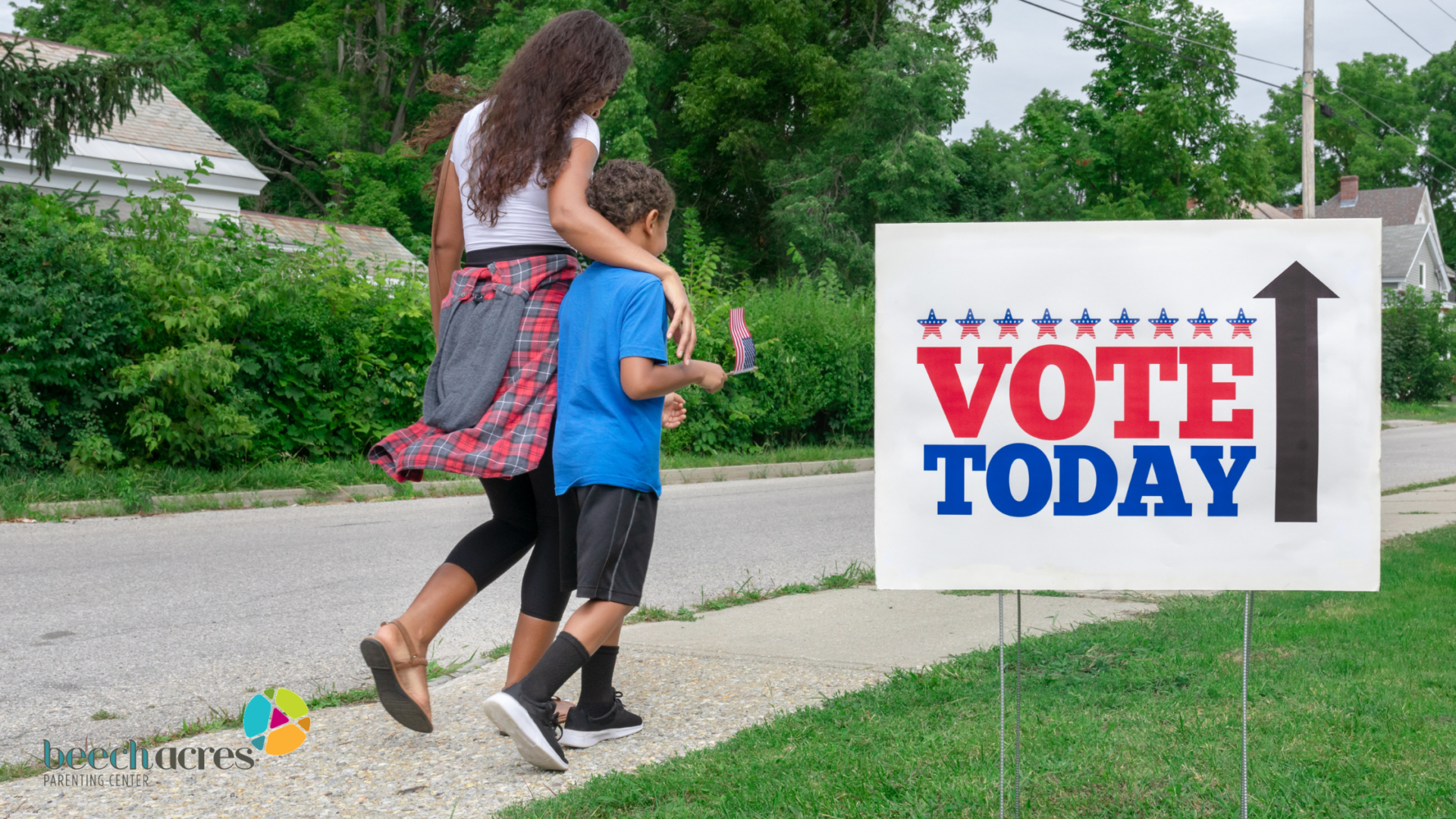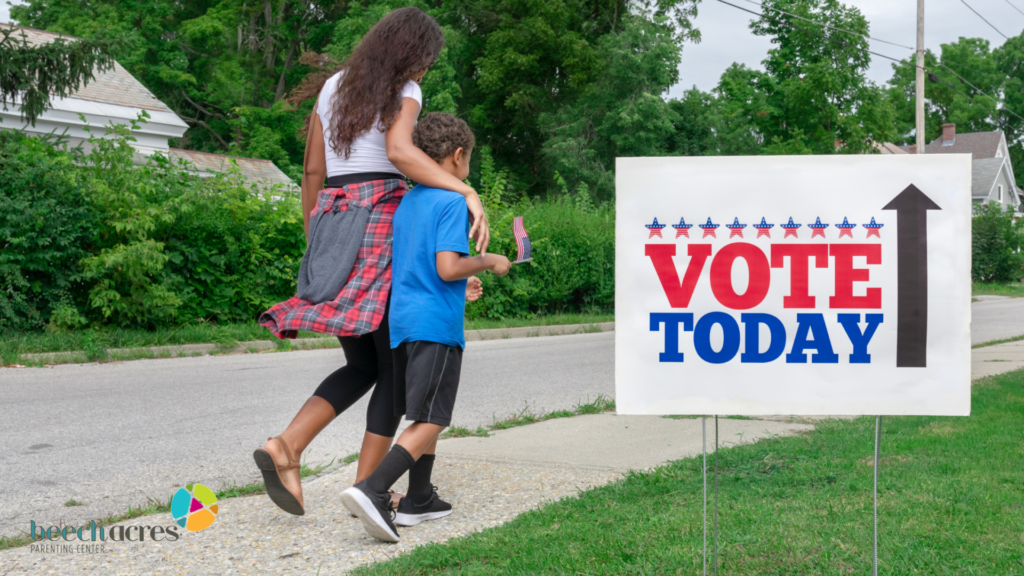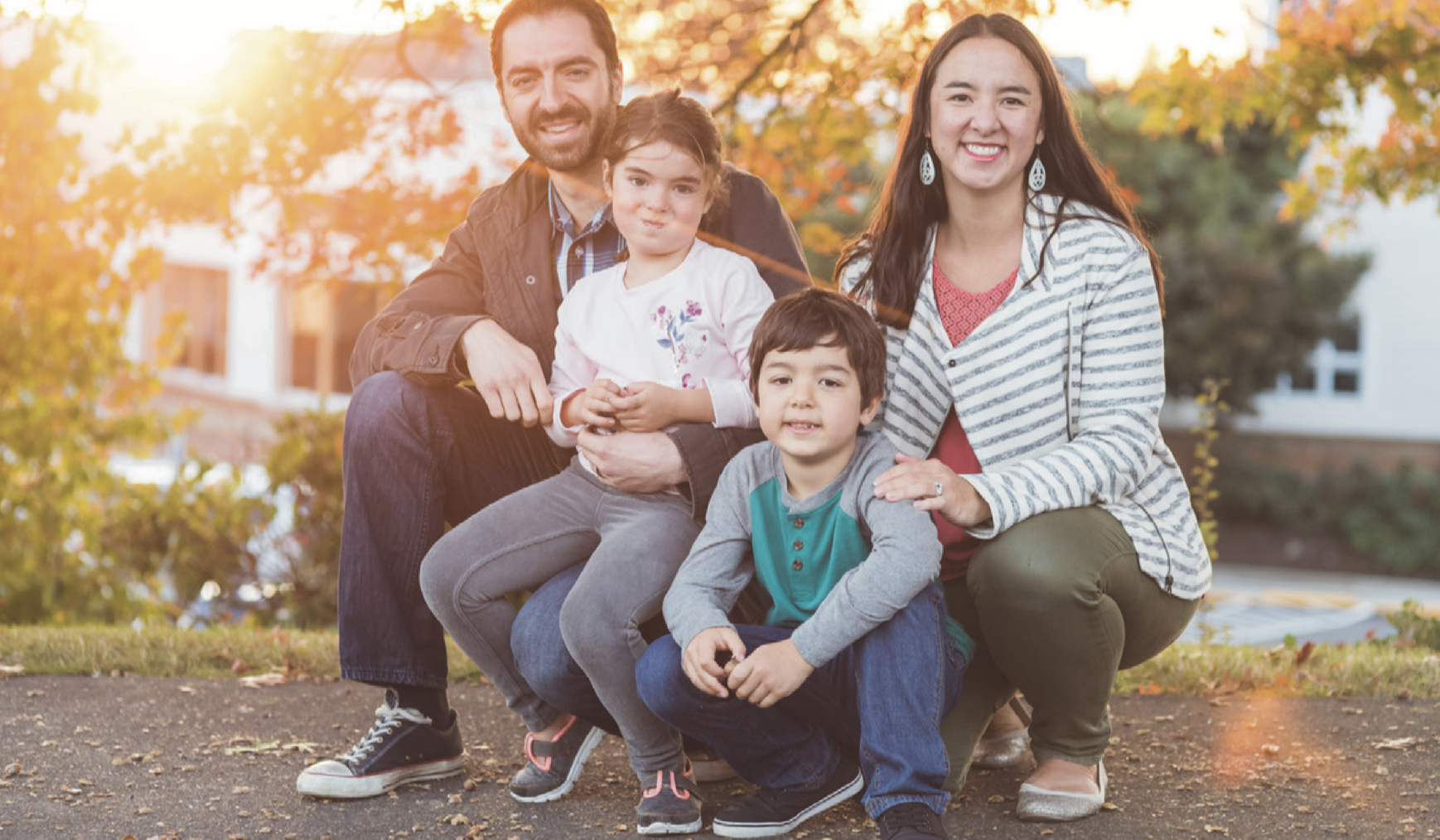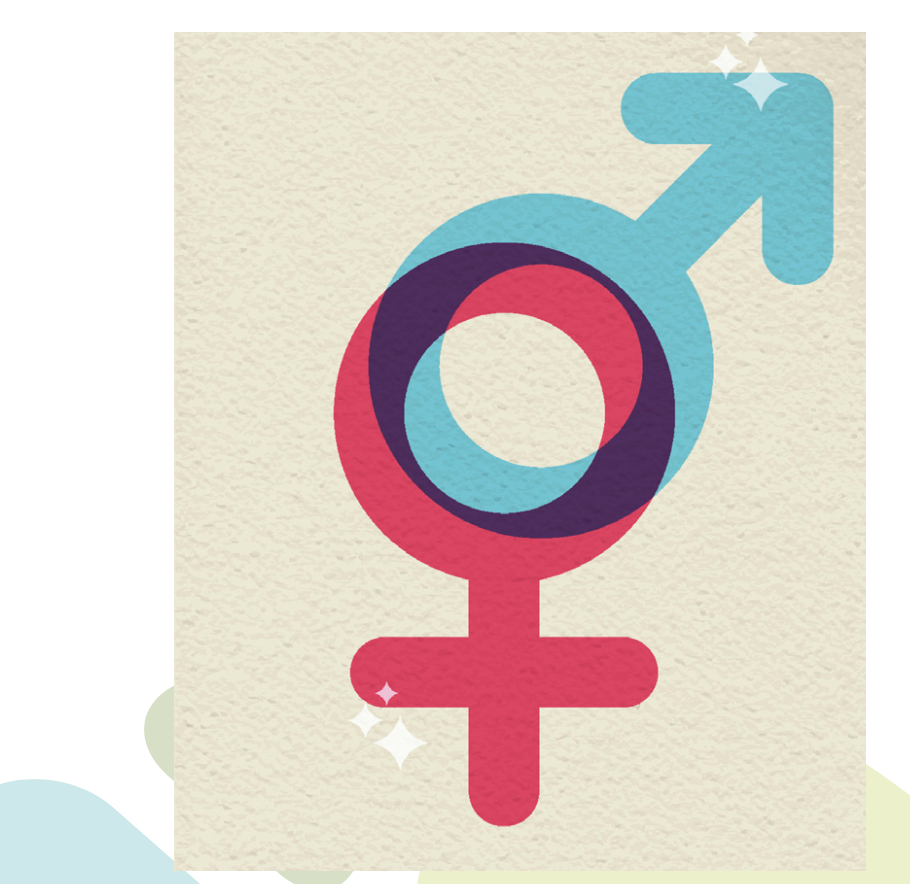How to Talk to Your Kids About the Elections

How to Talk to Your Kids About the Elections
Guest Blogger: Shawn Gilligan Parent Connext™ Parenting Specialist
Election season is upon us. It’s hard to miss it with all the political billboards, yard signs, tv ads, radio spots, mailers, etc. No matter your political affiliation or the age of your kids, they are noticing the changes in the landscape, hearing the messages on the various media outlets, and listening to our conversations.
So, how do you talk to your kids about the upcoming election? The first step is knowing your kid(s) and their ability to understand concepts and abstract information, much of that depends on the age of your kids.
Kids as young as 3 years old have some understanding of us and them and are developing their strength of fairness and sense of justice. As they enter elementary school kids understand concrete information but, are unable to grasp abstract concepts. They still tend to be very black and white in their thinking—good or bad, right or wrong, fair or unfair. Additionally, there is much variability in the knowledge and the ability to process the information in school-age children. Middle school-age children are gaining the ability to think more abstractly. They can think about possibilities and have an understanding of different points of view. High schoolers use complex thinking, have increased thoughts about global concepts, justice, politics, patriotism, etc. and often develop idealistic views on topics or concepts, and may debate or develop an intolerance for opposing views. So, back to that question…how do you talk to your kids about the election? The following are some tips:
- Use your strength of curiosity. Start by asking questions, that can be a great guide for how much information your child needs or wants. Questions like: What have you heard about the election? What are you wondering about the election? What are your thoughts on the upcoming election?
- Talk about values. If you haven’t already, this is a great time to define your family values. This is an opportunity to talk about what is important to you as a family and as an individual. Help your kids understand what you believe at home and how that impacts your vote.
- Differentiate between people and the offices they hold. Let your kids know we can disagree with or not like an elected official be we can still respect the office and position held.
- Help your children feel secure. Kids need to feel safe and the adults are in control. We need to reassure our kids, despite our personal concerns or fears. Let them know we have a strong democracy, there is a system in place and it is set up in a way that many people are making decisions (checks and balances).
- As always, be mindful. Be deliberate and mindful about how you talk about the election without letting it turn to gossip, name-calling, or false information. If you disagree with something let your kids know, this is not our family value, and here is why. Be a role model, remember, our kids are watching and learning from us when we are talking to family members, friends, and others. Check your own verbal messages and nonverbal messages…are they positive or negative? Are you fact-checking before repeating information?
- Tackling ‘fake’ news. Teach your kids they do not need to believe everything they hear. Teach them to fact check and check on reliable sources of information. Work on their critical thinking skills. Teach them about political advertising and what they are trying to do. Talk about who paid for the ads and how they are trying to influence the voter. Discuss political strategies—appealing to emotions, eliciting fear, smoke screens and distractions, and coded language to rally their supporters. Media Center Specialists in your students’ schools may already be teaching them about sources of news.
- Talk to your kids about the principle of free speech. It’s difficult for kids to understand and differentiate when we tell them to be kind and respectful and yet they see politicians and us (see #5, be a role model) being rude and disrespectful. Let them know that free speech is a constitutional right, yet it is still not okay for anyone—politicians, famous people, adults, kids to engage in name calling and bullying. Talk about good ideas and bad ideas not good people and bad people. Help them recognize having differences of opinion doesn’t make people good or bad. Having differences doesn’t mean you have to be enemies. Ask if your kids can come up with some real-life examples. They can have different opinions and still be friends…agree to disagree.
- Using empathy. When talking about issues try to see both points of view and encourage your kids to do so as well. Teach them to be fair in seeing the other perspective by truly listening to the other point of view and gaining understanding rather than thinking of your counter argument.
- Role play. Empower your kids to handle situations they may encounter with other kids or family member who may have strong or differing political opinions. Come up with some scenarios they may experience and make a plan for how they can handle these situations. Empower them to stand their ground for what they believe in and fight for it while being understanding and respectful. Also, giving them the power to walk away if the other person is not respectful, bullying, or name calling.
Kids of all ages can participate in learning about democracy in many ways. You can take kids of all ages with you to vote or if voting by mail let them look at the ballot and talk to them about your votes. Often at school there are mock elections or let them run for president at this non-profit site. You can also create democracy in action at home, voting on what game for family game night or voting on the family movie, etc.
As election day nears, please exercise your civic duty and VOTE!





